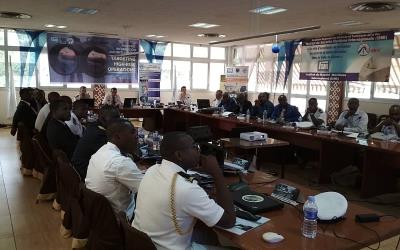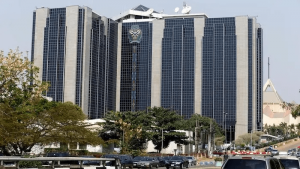ISMI Holds Seminar On Maritime Information And Intelligence To Fight Crimes On Sea

Interregional Maritime Security Institute (ISMI) has organized a four day seminar to build capacity of officers of the Yaoundé architecture coordination centres and maritime operational centres in the Gulf of Guinea countries with simple and inexpensive tools for exploiting maritime information and intelligence in order to enable effective operational action at Abidjan from 08 to 11th October 2019.The seminar under the theme, “Maritime information and intelligence: targeting high-risk operations”, brought together 20 auditors – officers from the maritime operational centres and coordination centres of the Yaoundé architecture, intelligence officers, warship commanders.The seminar attracted representatives from 14 countries in the Gulf of Guinea such as Benin, Cameroon, Democratic Republic of the Congo, Equatorial Guinea, Gabon, Ghana, Guinea Conakry, Liberia, Nigeria, Republic of the Congo, Senegal, Sierra Leone, Togo and of course Côte d’Ivoire with funding support by the French cooperation.Speaking to the gathering in the form of a welcome address, Director of ISMI Commander Lazare Abé Aké encouraged participants to take full advantage of the seminar to find solutions to the growing threats of terrorism, Jihadism, Cybercrime, and others in the region.“Indeed, the new threats facing our States, such as terrorism, Jihadism, cybercrime, and piracy, are diffuse, everywhere and nowhere at once, difficult to identify and target. Experts are increasingly talking about asymmetric warfare.“The organization of this seminar is therefore timely. It aims to provide a framework for capacity building for structures and services in charge of intelligence collection, analysis and processing and to identify tools and channels for communication and dissemination of information”, he said.Commander Lazare Abé Aké continued, “Therefore, dear participants, I encourage you to take full advantage of the training provided by our eminent experts to promote the blue economy of our respective States”.At the end of the day, several simple and useful tools were presented to the participants including operational checklists, open-source databases (AIS suppliers, shipping companies, maritime insurance, ship photo libraries, etc.), personalized databases (useful numbers, ships of interest, etc.), daily maritime information bulletin, security matrix, definition of hotspots, archiving, etc.The auditors received theoretical presentations on the nature of international maritime traffic and its monitoring capabilities, maritime information management and the concept of an information fusion centre, maritime partners, and the organization and tools of an operational centre. Simple and useful tools were presented to them: operational checklists, open source databases (AIS suppliers, shipping companies, maritime insurance, ship photo libraries, etc.), personalised databases (useful numbers, ships of interest, etc.), daily maritime information bulletin, security matrix, definition of hotspots, archiving, etc.Why the need for the seminarThe Gulf of Guinea presents major challenges, not only for African economies but also for Asian and European economies.According to the International Maritime Bureau (IMO), in 2018 there were 201 pirate attacks worldwide (compared to 180 in 2017), and the latest spectacular kidnapping at sea (17 sailors on 15 August off Douala) unfortunately makes the Gulf of Guinea the hot spot for piracy in the world.It is estimated that 60% of the species fished in the Gulf of Guinea are fished illegally. The losses are obviously colossal for the coastal States.All kinds of trafficking pass through the Gulf of Guinea (narcotics, illegal fuel bunkering, and illegal goods of all kinds).





